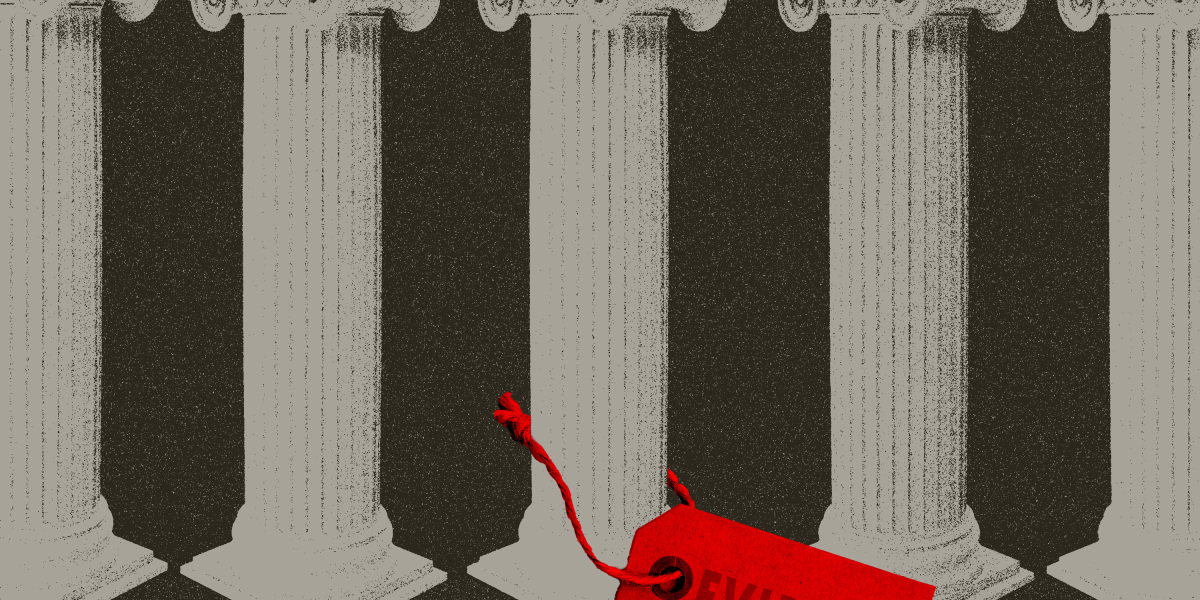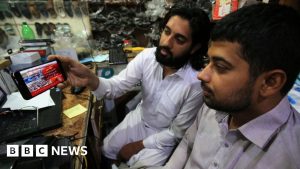
Advocates say the China Initiative has become an excuse for racial profiling, part of a long US history of treating Asian-Americans as untrustworthy foreigners. In 1882 the Chinese Exclusion Act barred Chinese immigrants from entering the country for 10 years, and during World War II the federal government detained hundreds of thousands of innocent Japanese-Americans. Under the Clinton and Obama administrations there was a string of failed espionage cases against Chinese-American scientists, including Wen Ho Lee of Los Alamos National Laboratory, Temple University’s Xi Xiaoxing, and the National Weather Service’s Sherry Chen.
“The China Initiative is premised explicitly on the theory that there is an ethnic affinity … on the part of people of Chinese descent—even if they are United States citizens or Canadian citizens—to act in violation of American law for the benefit of Beijing,” says Frank Wu, the president of Queens College at the City University of New York. Under this system, he says, “ordinary behaviors such as scientific cooperation or visiting your mother [in China] suddenly become suspicious.”
It has also had a chilling effect on Chinese-American scientists, says MIT’s Huang. During his regular meetings with the Asian American Scholar Forum, he says, others have expressed fear of being arrested, fear of losing their funding, and fear about the way they might be perceived by their non-Asian colleagues. Young PhD students are no longer looking for professorships in the US, he says, while established scientists are now searching for international options. A number returned to China to prestigious posts—an outcome the China Initiative had hoped to avoid—after their careers in the United States were destroyed.
“It’s pretty bad and pretty pervasive. We’re seeing this climate of fear engulfing Chinese-American scientists,” Huang says. “The US is losing the most talented people to other countries because of the China Initiative. That’s bad for science. That’s bad for America.”
The Hu case played out
To activists and civil society researchers who’ve been following the China Initiative, Hu’s case is anything but surprising.
Hu, a Chinese-born Canadian citizen, is a celebrated researcher in nanotechnology. In 2013, the University of Tennessee recruited him to teach and continue his research. Hu disclosed on multiple occasions that he’d worked part time teaching graduate students and researchers at the Beijing University of Technology, according to the Knoxville News Sentinel.
“The China Initiative is premised explicitly on the theory that there is an ethnic affinity on the part of people of Chinese descent to act in violation of American law for the benefit of Beijing.”
Frank Wu, City University of New York
None of this raised any issues at the time. When Hu began collaborating with NASA, which is legally barred from funding any research that involves “participation, collaboration, or coordination” with “China or a Chinese-owned corporation,” UT administrators assured both him and the government agency that this part-time work didn’t violate the restriction. The law is meant to apply to NASA, not to its research collaborators.
In 2018, however, the FBI identified Hu as a potential spy. During his court testimonial, Agent Sadiku said he had found and made a “rough translation” via Google of a Chinese-language news release and flier that suggested Hu had once received a short-term contract from the Thousand Talents Program. That was evidence enough for Sadiku to open up a formal probe.
During Sadiku’s first visit to Hu’s office, Hu says, the agent tried to get him to admit to involvement in a talent program.
“They said, ‘You are so smart. You should be in the Thousand Talents Program,’” he recounted during his trial. “I say, ‘I’m not that smart.’”
Sadiku also tried to persuade him to become a spy for the US government, using his Beijing University work as a cover. Hu declined via email after Sadiku’s visit. After this, Sadiku doubled down on his investigation, placing Hu and his son—then a freshman at UT—under surveillance.
But after nearly two years, Sadiku turned away from the espionage claims and instead started building the fraud case that Hu ended up being charged with. The evidence rested on a form that the university requires academics to fill out, disclosing any outside work that earns them more than $10,000. Hu did not disclose his part-time job because it earned him less than $2,000. Sadiku says this is evidence that Hu intentionally hid his China-affiliated work to defraud NASA. The jury, however, could not decide, and the deadlock triggered a mistrial.
FBI under pressure
Observers say the details of the case echo those of others brought as part of the China Initiative: a spy probe on an ethnically Chinese researcher is opened with little evidence, and the charges are later changed when no sign of economic espionage can be found.
According to German, the former FBI agent, this is due to the pressure “on FBI agents across the country, every FBI field office, [and] every US Attorney’s office to develop cases to fit the framing, because they have to prove statistical accomplishments.”
“The DOJ doesn’t need a special initiative targeting China to go after spies. They should be able to use their normal methods and procedures.”
Alex Nowrasteh, Cato Institute
On Thursday, June 17, shortly after news of the mistrial, members of the House Judiciary Committee wrote to the inspector general of the Department of Justice requesting that the DOJ investigate whether there was adequate evidence unrelated to race or ethnicity for the FBI to open the case, whether the bureau had used false information and made false statements, and whether the China Initiative resulted in “untoward pressure” to engage in ethnic and racial profiling.
This follows increasing demands to investigate whether the initiative has led to such profiling—and calls to end that program altogether.
“The DOJ doesn’t need a special initiative targeting China to go after spies,” says Alex Nowrasteh, the director of immigration studies and the Center for Trade Policy Studies at the Cato Institute. “They should be able to use their normal methods and procedures.”
Hu’s trial suggests “that the scope of Chinese espionage is probably a lot less than people think,” he adds. “If there was a lot more of it, you’d think it’d be a little bit easier to find, and they wouldn’t have to make up cases.”
As for Hu, his nightmare is far from over.
He is still under house arrest, pending a decision from either the Department of Justice to renew the case or drop it, or the judge to dismiss the government’s charges entirely. He has been jobless since his US work visa expired, but he has also not been granted leave from house arrest so he can return to Canada to renew it. Doing so could put him in the crosshairs of Immigration and Customs Enforcement, according to his lawyer.
All he can do is wait for the US government to make its next move.



